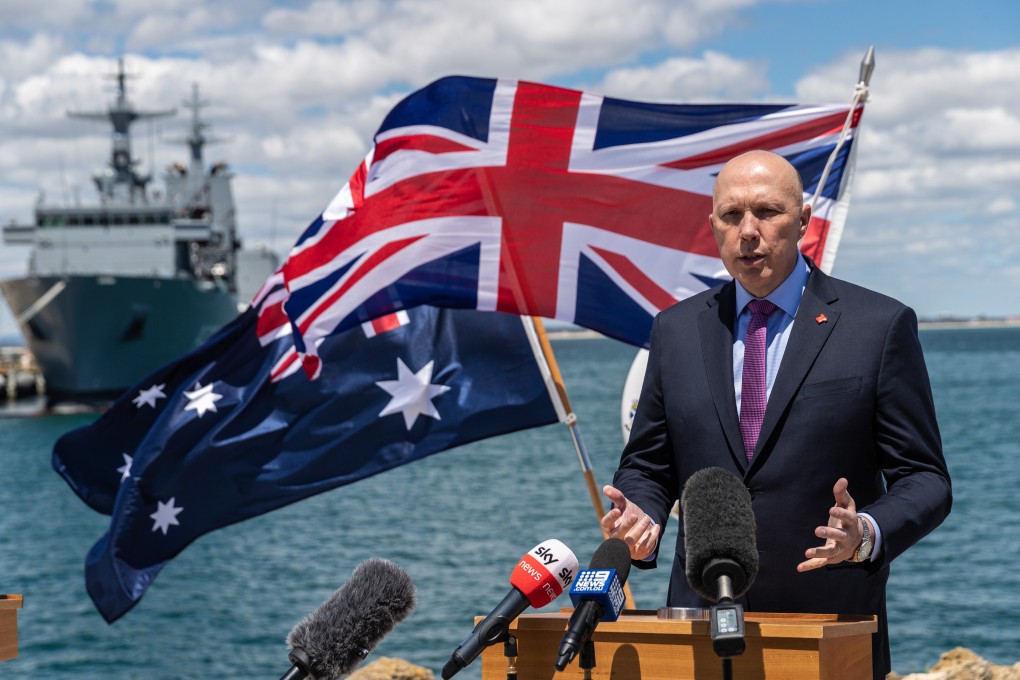Advertisement
Aukus: Australia, US, Britain sign key deal in nuclear sub alliance
- Australia’s defence minister joined US and UK diplomats in signing a pact allowing the exchange of sensitive ‘naval nuclear propulsion information’ between their nations
- The Aukus deal, in which Australia would obtain eight nuclear-powered submarines capable of stealthy, long-range missions, has angered China
Reading Time:2 minutes
Why you can trust SCMP
2

Australia on Monday formally embarked on a hotly-contested programme to equip its navy with nuclear-powered submarines in a new defence alliance with Britain and the United States.
Defence Minister Peter Dutton joined American and British diplomats in signing an agreement allowing the exchange of sensitive “naval nuclear propulsion information” between their nations.
It is the first agreement on the technology to be publicly signed since the three countries announced in September the formation of a defence alliance, Aukus, to confront strategic tensions in the Pacific where China-US rivalry is growing.
“The agreement will permit cooperation, which will further improve our mutual defence posture,” US President Joe Biden said in a statement on Friday ahead of Dutton’s signing ceremony in Canberra with US Charge d’Affaires Michael Goldman and British High Commissioner (ambassador) Victoria Treadell.
Advertisement
Under the Aukus deal, Australia would obtain eight state-of-the-art, nuclear-powered submarines capable of stealthy, long-range missions. It also provides for sharing cyber, artificial intelligence, quantum and unspecified undersea capabilities.
The agreement has angered China, which describes it as an “extremely irresponsible” threat to stability in the region.
Advertisement
It has also infuriated France, which discovered at the last moment that its own diesel-electric submarine contract with Australia – recently estimated to be worth A$90 billion (US$65 billion) – had been scrapped.
Advertisement
Select Voice
Choose your listening speed
Get through articles 2x faster
1.25x
250 WPM
Slow
Average
Fast
1.25x